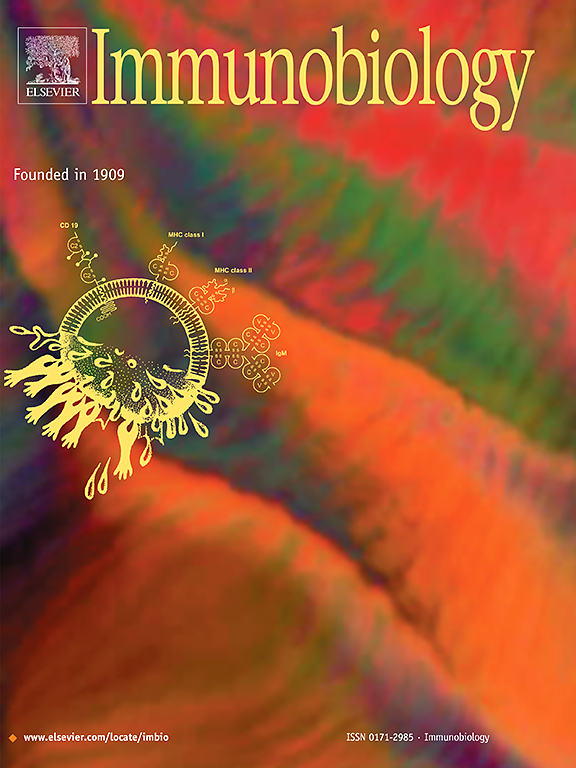High-dose Vitamin C inhibits PD-L1 expression by activating AMPK in colorectal cancer
IF 2.3
4区 医学
Q3 IMMUNOLOGY
引用次数: 0
Abstract
Vitamin C (VitC) has elicited considerable interest regarding its potential role in cancer therapy; however, its effects on tumor immunity remain unclear. In colorectal cancer (CRC), although anti-PD-1/PD-L1 therapies demonstrate promise, their efficacy is still constrained. Our prior research demonstrated that VitC can inhibit tumor growth by suppressing the Warburg effect. This study aims to explore the effects of high-dose VitC on PD-L1 expression in CRC, focusing on its underlying mechanisms and potential for enhancing immunotherapy. We found that VitC inhibits aerobic glycolysis in HCT116 cells while also downregulating PD-L1 expression. Further investigations indicated that this process is mediated by VitC's activation of AMPK, which downregulates HK2 and NF-κB, ultimately resulting in reduced PD-L1 expression and increased T cell infiltration. Notably, we observed that VitC and the PD-L1 monoclonal antibody atezolizumab exhibit comparable tumor-inhibiting abilities, and their combined use further enhances this efficacy. In conclusion, our results demonstrate that high-dose VitC activates AMPK, downregulates PD-L1 expression, mitigates immune evasion, and suppresses tumor growth. This provides a promising strategy for optimizing immunotherapy in CRC.

大剂量维生素C通过激活AMPK抑制结直肠癌中PD-L1的表达
维生素C (VitC)在癌症治疗中的潜在作用引起了人们的极大兴趣;然而,其对肿瘤免疫的影响尚不清楚。在结直肠癌(CRC)中,尽管抗pd -1/PD-L1疗法显示出希望,但其疗效仍然受到限制。我们之前的研究表明,维生素c可以通过抑制Warburg效应来抑制肿瘤的生长。本研究旨在探讨高剂量维生素c对CRC中PD-L1表达的影响,重点探讨其潜在机制和增强免疫治疗的潜力。我们发现维生素c抑制HCT116细胞的有氧糖酵解,同时也下调PD-L1的表达。进一步研究表明,这一过程是通过VitC激活AMPK介导的,AMPK下调HK2和NF-κB,最终导致PD-L1表达降低,T细胞浸润增加。值得注意的是,我们观察到VitC和PD-L1单克隆抗体atezolizumab具有相当的肿瘤抑制能力,并且它们的联合使用进一步增强了这种功效。总之,我们的研究结果表明,高剂量维生素c激活AMPK,下调PD-L1表达,减轻免疫逃避,抑制肿瘤生长。这为优化CRC的免疫治疗提供了一个有希望的策略。
本文章由计算机程序翻译,如有差异,请以英文原文为准。
求助全文
约1分钟内获得全文
求助全文
来源期刊

Immunobiology
医学-免疫学
CiteScore
5.00
自引率
3.60%
发文量
108
审稿时长
55 days
期刊介绍:
Immunobiology is a peer-reviewed journal that publishes highly innovative research approaches for a wide range of immunological subjects, including
• Innate Immunity,
• Adaptive Immunity,
• Complement Biology,
• Macrophage and Dendritic Cell Biology,
• Parasite Immunology,
• Tumour Immunology,
• Clinical Immunology,
• Immunogenetics,
• Immunotherapy and
• Immunopathology of infectious, allergic and autoimmune disease.
 求助内容:
求助内容: 应助结果提醒方式:
应助结果提醒方式:


